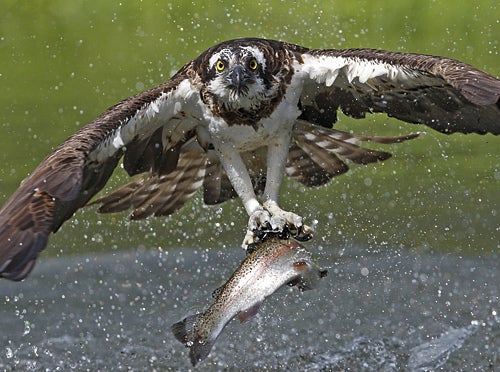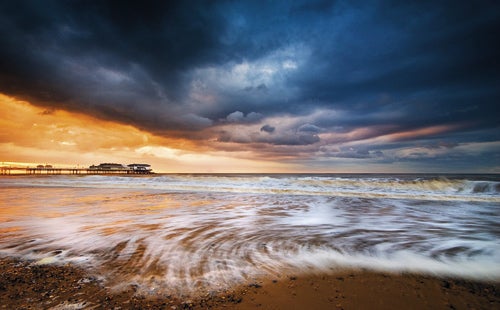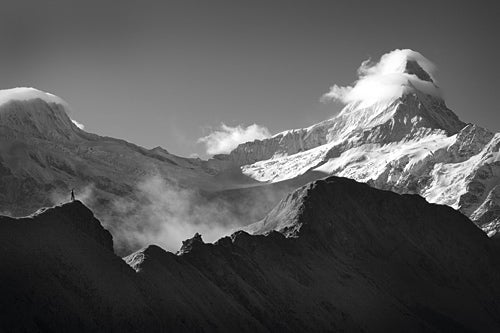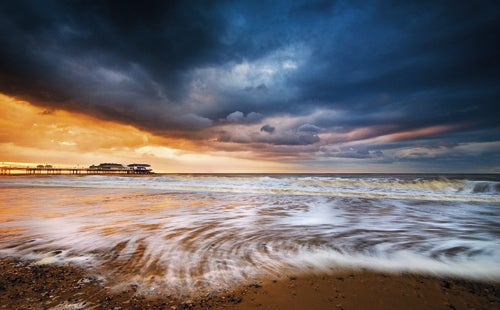Your guide to photo competitions
In photography, the road to success can seem very long and winding indeed. Establishing yourself in the business can take years of painstaking self-publicising, hard work behind the lens and in front of a computer screen. However, a photography competition can change all of that. Not only is it a chance for you to scoop a bag full of prizes, but also the chance to gain nationwide, if not worldwide, exposure for your work.
 Photography competitions aren’t only for the aspiring professional photographer, however; even the budding amateur can gain something from the experience of entering a competition. Not only does a competition give you a focus on a subject to shoot, often making you consider alternatives to your usual fodder, but the process of compiling and submitting an entry to a competition can give you valuable experience in assessing your own photography.
Photography competitions aren’t only for the aspiring professional photographer, however; even the budding amateur can gain something from the experience of entering a competition. Not only does a competition give you a focus on a subject to shoot, often making you consider alternatives to your usual fodder, but the process of compiling and submitting an entry to a competition can give you valuable experience in assessing your own photography.
There is a wide range of photography competitions out there, with a range to suit every standard and every interest in photography. While there are several main, national yearly competitions that boast the biggest prize pools and the most exposure, the benefits of competition photography can span right down to entering a competition run by your local newspaper, with any win or commendation bound to do wonders for your photographic career, and confidence.
So, what exactly are the competitions on offer? And, more important, what exactly is needed to stand a chance of winning a big prize? Follow our guide to find out more…
Photo competition requirements
It’s worth taking a look at what exactly the competition is really looking for. While you may think that it’s as simple as sending off your best image and waiting to claim your riches and acclaim, it’s rarely so. More often than not, larger competitions will have strict guidelines as to the format your submission will take. If you’re submitting your images online, the chances are that the competition will require your images to be saved at a certain file size, with maximum dimensions and the like, so as to suit their web hosting service.
Also, beware the requirements with regards to how many images you submit and how they will be assessed. A large majority of competitions will be based around a portfolio, or at least have a portfolio category or element, and as such you will be required to submit a complete body of work rather than just one stunning image. The main idea with a portfolio category is to demonstrate excellence with a series of images that tie together, in some cases telling a story, rather than a collection of individual shots, so be sure to bear this in mind.
Photo rights
There have been several instances in recent times of smaller, less well-known and ‘newer’ competitions operating solely as a guise for what could be described as a ‘rights grab’. This is where the competition invites entries and in turn has it written in the small print of entries that it will retain all the rights, and therefore ownership, of your images. This means that the organisers of the competition will essentially build up an image library of thousands of images, all at the expense of a few prizes. This is frowned upon within the photographic industry, understandably, and few competitions manage to get away with such behaviour these days without public outcry encouraging them to change their requirements. Do be sure not to confuse this with conventional terms and conditions with regards to image rights, however – it’s standard for a competition to want rights to reproduce your image in promotional material, and will often state as much in their small print.
Prize fund
This may seem like stating the obvious, but always take a look at what the prize fund has on offer. Don’t be scared off if a photographic competition doesn’t have the headline-grabbing prizes and big money of some of their bigger counterparts; they’ll often make up for it with ‘money can’t buy’ type opportunities, such as national exposure or the photographic trip or experience of a lifetime. Have a hunt around, as even the smallest competition could be worth putting your time and effort in to enter.
Image variety
If you think of the number of images judges have to sift through, often in the tens of thousands, you have to work pretty hard to get your image noticed. Bearing this in mind, try to interpret the rules and requirements of the competition in such a way that allows you to submit a striking and different image. Try to avoid cliché shots if at all possible, and submit an image that leaps off of the page and can’t fail to grab the judges’ eyes.
Wildlife Photographer of the Year competition

One of the most famous of the national photography competitions, the Wildlife Photographer of the Year, owned by the Natural History Museum and BBC Wildlife Magazine, boasts a wide range of prizes and extensive national coverage. Winning and commended entries are exhibited both nationally and internationally. The exhibition including 2008 winners is still touring; for more information visit the competition’s website. www.nhm.ac.uk/wildphoto
Landscape Photographer of the Year competition

The landscape photographer of the Year contest, also known as ‘Take a View’, is the brainchild of renowned landscape photographer Charlie Waite. The competition goes from strength to strength each year, demonstrating the popularity of landscape photography. With a total prize fund of over £20,000, plus an eight-week exhibition and publication in a book of the winners, the Landscape photographer of the year contest is always popular. www.take-a-view.co.uk
International Garden Photographer of the Year competition

Now in its third year, the International garden photographer of the year competition sports a surprisingly broad range of categories in which to try your luck. Support by both the National Trust and the Royal Photographic society, a good prize pool and a place in the winners’ exhibition in Kew Gardens all make IGPOTY one of the standout national competitions, and this year’s deadline falls on 30th November. www.igpoty.com
Travel Photographer of the Year competition

Amongst a broad range of travel photography competitions, the International Travel Photographer of the year is regarded as the definitive travel photography competition. One of the main focuses for the competition is to help showcase the work of the winning and commended photographers, and it can be a vital step towards making your way in the world of photography. www.tpoty.com





